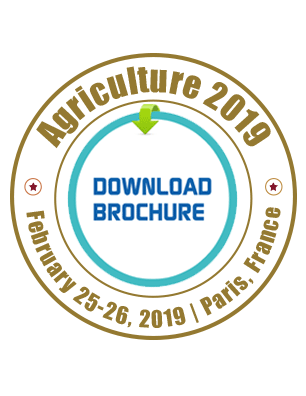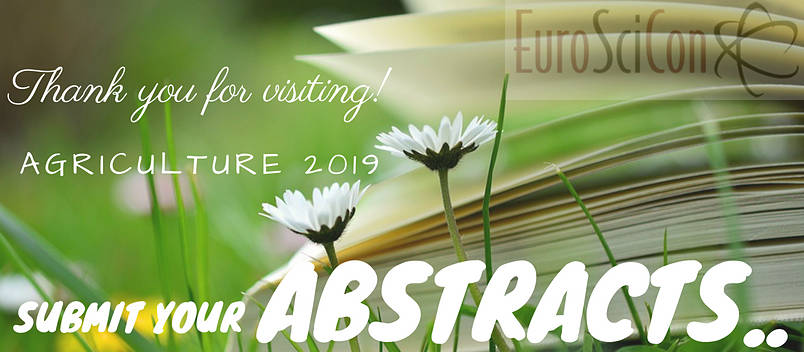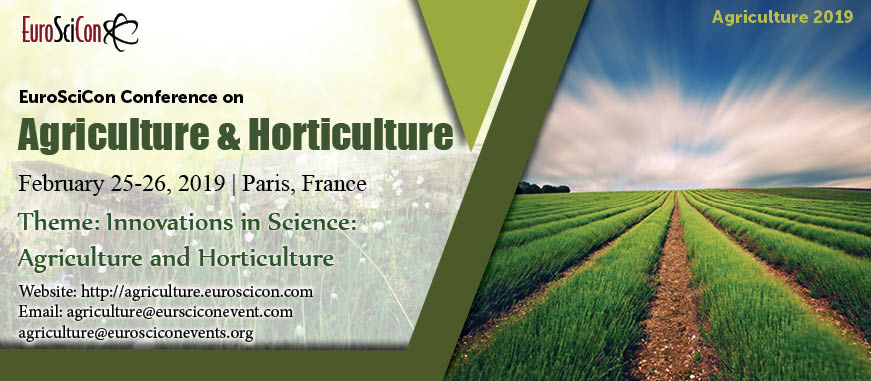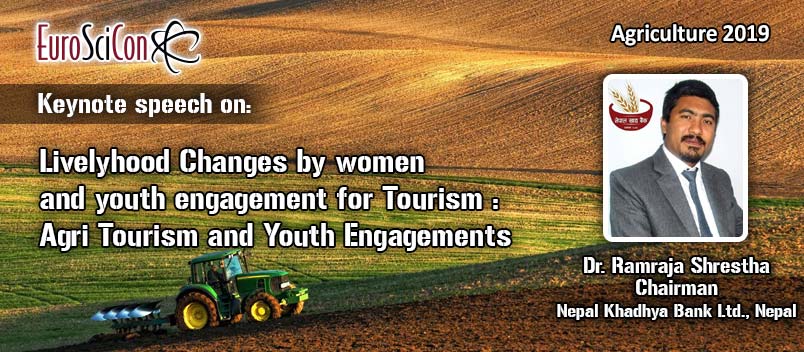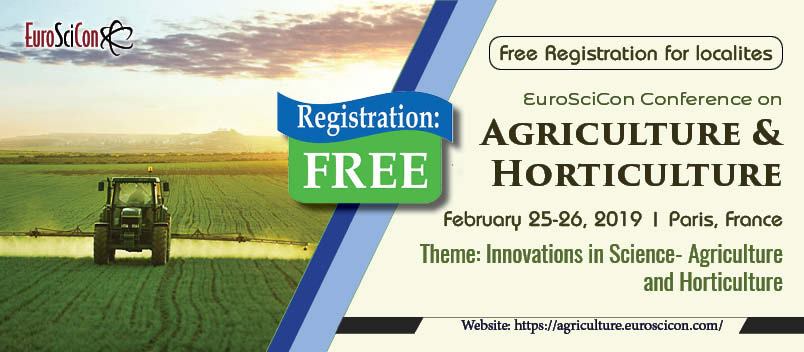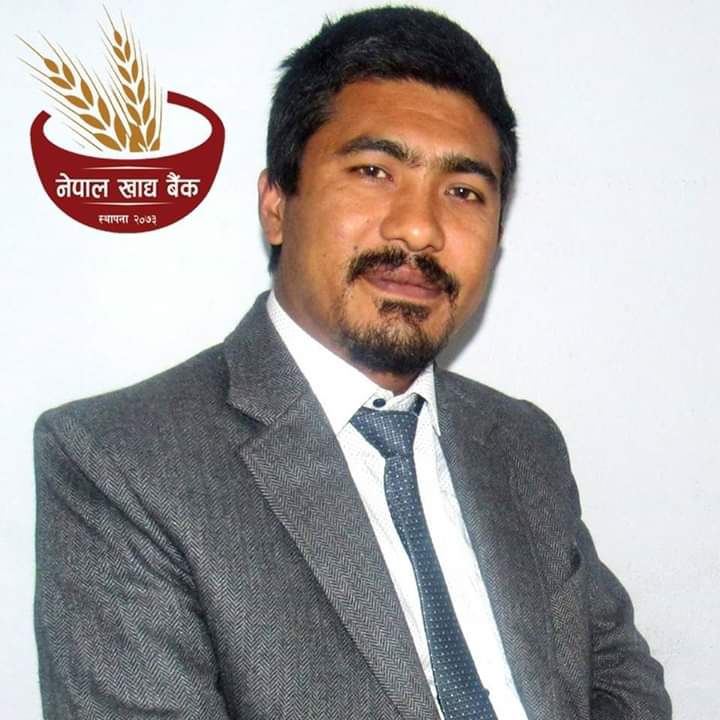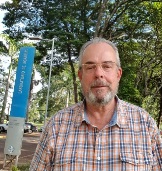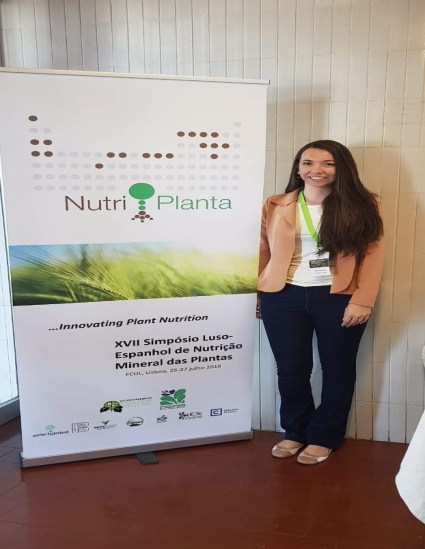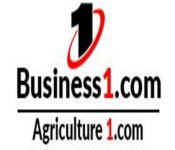Agriculture 2019
ABOUT THE EVENT
Theme: Innovations in Science: Agriculture and Horticulture
EuroSciCon is organizing yet another awaited event in the form of Agriculture and Horticulture, 2019. The conference is supposed to be in the French capital, Paris, on 25-26th February 2019.
Agriculture 2019 meeting is going to be a dynamic platform and the renowned researchers of the world would gather to enlighten the arising issues, innovations and integrated approaches towards the newly evolving Agriculture and Horticulture practices. Know about the present scenario of agriculture is the need of time because of its direct influence on the environment and eventually on the living beings. The conference will be a versatile multidisciplinary crowd of globally perceived specialists presenting their views on the topic “Innovations in Science: Agriculture and Horticulture”. Therefore, we would like to take the opportunity to invite the best scientists and business people from around the world for the meeting. The sessions will be in varying educational formats for interactive informal exchanges. We invite young researchers and students to attend the meeting for a better understanding of the current aspects and trends in agricultural practices through this conference.
Agriculture 2019 includes facilities like a designated registration area, a refreshment break, and a gala lunch. Agriculture technologists and scientists of horticulture background can join the EuroSciCon as an international member to receive discounts on registration.
So come and join the leading experts and allied professionals on 25th and 26th February 2019 in Paris, France to discuss the ways to develop new technologies that will renew Agriculture and Horticulture.
About Paris
Paris is the French capital as well as the largest city. Being the most populous it is a hub for European finance, fashion, commerce, science and fine arts. River Seine flows through this ‘City of lights’ and divides Paris into Southern Rive Gauche (left bank) and Northern Rive Droite (right bank) regions. The climate of the region of Île-de-France is temperate: it is cold but not freezing in winter, and pleasantly warm in summer. Late December to March is the most economic span for visiting Paris as not much tourists opt to come in that season. June is the best season to relish and cherish the wonderful city on the whole otherwise. The city is a major rail, highway, and air-transport hub served by two international airports: Paris-Charles de Gaulle and Paris-Orly.
Paris is especially known for its museums and architectural landmarks: the Louvre, The Musée d'Orsay, and Musée de l'Orangerie are noted for their collections of French Impressionist art. The Pompidou Centre Musée National d'Art Moderne has the largest collection of modern and contemporary art in Europe. The historical district along the Seine in the city center is classified as a UNESCO Heritage Site. Other attractions include the Cathedral of Notre Dame de Paris and the Gothic royal chapel of Sainte-Chapelle. The Eiffel Tower is the biggest tourist attraction. Visitors also like to see the Arc de Triomphe and the Basilica of Sacré-Coeur on the hill of Montmartre. In summer, salads and fruit dishes are popular because they are refreshing and produce is inexpensive and abundant. The hunting season begins in September and runs through February. Shellfish are at their peak when winter turns to spring, and oysters appear in restaurants in large quantities.
TRACKS
TRACK 1 Agriculture Engineering: Agricultural engineering is concerned with the applied use of the scientific and technological advancements for efficient production and processing of food, feed, fiber, and fuels. It is an amalgamation of civil, electrical, mechanical and chemical engineering principles with the basics of agriculture and related technology. The key goal of this discipline is to improve the efficacy and the sustainability of the on-going agricultural practices.
- Agricultural Advanced Machines
- Agricultural resource management
- Agricultural machinery
- Precision farming
- Bio-information system
- Remote Sensing and Agri GIS
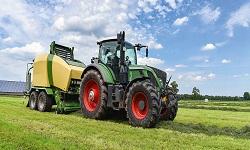
TRACK 2 Post-harvest Technology: Post-harvest technology plays a major role in accomplishing the dietary needs of the people through apt processing which includes the removal of nutritional losses from the food products and correct fortification. It carries a lot of potential for developing rural industries as post harvesting is vital for healthy processing and consumers are attracted to the benefits of these well-processed products.
- Agricultural science
- Plant pathology and plant-microbe biology
- Plant environmental sciences and forest ecosystems
- Plant breeding and molecular breeding
- Plant biotechnology
- Post-harvest technology of oilseeds and pulses
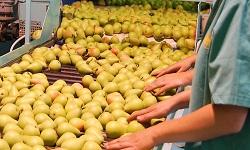
TRACK 3 Agriculture Law and Policy: Agriculture law is a broad canopy that covers seed, water, fertilizer, pesticide use, agricultural infrastructure, agricultural insurance, agricultural marketing, agricultural labor, agricultural finance, farming rights, land tenure and tenancy system and law on Agricultural processing and rural industry. Issues related to environmental law, sustainability, animal welfare, and food law and policy are monitored under Ag-law.
- Agricultural labor
- Agricultural finance
- Farming rights
- Land tenure
- Agricultural exceptionalism
- Agricultural district
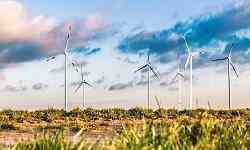
TRACK 4 Rice and Wheat Research: Rice is one of the most consumed cereal in the world as a food product. Rice is the seed from grass species Oryza sativa or Oryza glaberrima. It is significant with regard to human nutrition and caloric intake, providing more than one-fifth of the calories consumed worldwide by humans. Many species of wheat together make up the genus Triticum of which the most widely grown is common wheat (T. aestivum).
- Hybrid rice & wheat
- Rice & wheat diseases
- Rice nutrition
- Functional properties of rice and wheat
- Rice and wheat yield
- Rice blast
- Golden rice
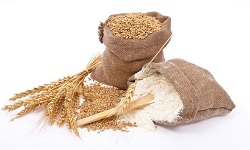
TRACK 5 Food and Nutrients: Smart nutrition and food choice are factors to a healthy intake. Understanding good nutrition and planning the diet accordingly can help in reducing numerous diseases. A balanced diet is the key to a healthy living and should include the essential nutrients like proteins, carbohydrates, fats and oils, fiber, vitamins and minerals in adequate amount, simultaneously fulfilling the body’s water demand as well.
- Food science and chemistry
- Public health research
- Probiotics and prebiotics
- Nutrition and metabolism
- Human nutrition and dietetics
- Nutrition value and quality of foods
- Food and nutritional disorders
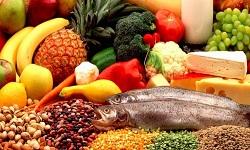
TRACK 6 Horticulture: Horticulture is a blend of domestic gardening and agriculture, though all forms of cultivation naturally have close links to agriculture. Horticulture is all about growing fruits and vegetables for consumption and ornamental plants for commercial demands. Olericulture is concerned with ornamental plants and primarily focuses on herbaceous plants which are easily accommodated in homes and indoor places for beautification.
- Fruit and vegetable breeding
- Arboriculture
- Turf management
- Seed physiology
- Horticultural produce marketing and value chains
- Hybrid Treatment Systems to Remove Nutrients and Pathogens from Horticultural Runoff Waters
- Floriculture
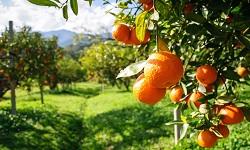
TRACK 7 Agriculture and Food Safety: The food-borne illnesses not only affect the health but also result in the drastic downfall of the economy. However, they can be prevented by applying certain principles commencing from on-farm production to processing, distribution, storage, selection, preparation, and consumption. Awareness about food safety can deliver benefits to the nation both economically and socially.
- Food and nutrition security
- Sustainable intensification of food production systems
- Innovative ways of feeding increasing population
- Food storage and technology
- Fermentation Technology and Cereals
- Food packaging
- Post-Harvest Handling and Processing

TRACK 8 Agroforestry: Agroforestry is the remedy to addressing issues of environmental, economic or social concern. Traditional and modern land-use systems where trees are managed along with crops and animal production systems optionally are highlights of agroforestry. Such integration practices aid to enhance the social, economic and environmental conditions through diverse natural resource management systems.
- Soil moisture control system
- Agri-silvicultural systems
- Silvi-pastoral systems
- Agrosylvopastoral systems
- Evergreen agriculture
- Climate-smart agriculture
- Agro-ecology
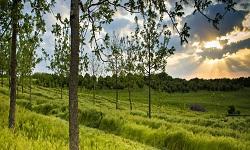
TRACK 9 Crop Protection: Crop protection is basically done to reduce the effect of extreme pest, weed, climatic and disease conditions. It prevents the action of inhibitors on the plant crops which restrict the growth of fruit, vegetable, and other horticultural plants. Good crop protection practices lead to higher yield of crops, thus generating greater revenues.
- Bird Netting
- Cover crops and trap crops
- Beetle banks
- Integrated pest management
- Biological pest control
- Biochemical pesticides
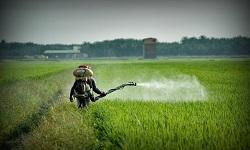

TRACK 10 Entomology: Entomology is the study of insects and their behavior. It is a more specific and streamlined discipline of zoology. Professionals of this field contribute to the betterment of humankind by analyzing the role of insects as disease vectors and determining ways of shielding food, crops, and livestock against them.
- Application of taxonomy
- Insect science
- Pollinators
- Honey bee farming
- Animal psychology based approaches
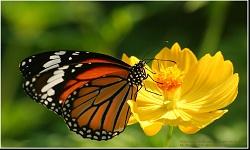
TRACK 11 Agronomy and Crop Sciences: Agronomy is the application of science and technology to study plants for commercial use. This includes using plants for food, fuel, fiber, and land reclamation. Agronomy is concerned with the managing of the environmental impact of agriculture, food production, food fortification, and extracting energy from plants, involving areas like plant genetics, plant physiology, and soil science.
- Efficient crop production
- Seed technology
- Forage crop & grass science
- Crop genetics and breeding
- Physiology and ecological research on herbs
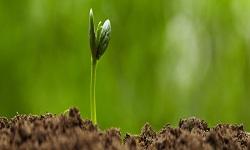
TRACK 12 Agriculture Polymers: Functional polymers turned out to be the revolutionaries for the agriculture sector during the last ten years. Due to the advancement in techniques, the issues related to crop pathogens, viral infections and pest attacks are being tackled. Biodegradable polymers are being extensively used in present time as a safer substitute for plastics which hinder the food chain and pollute the environment.
- Biodegradable polymers
- Polymeric biocides and herbicides
- Super absorbent polymers
- Hydrogel agriculture technology
- Water-insoluble polymers
- Polyacrylamide preparation
- Soil conditioners
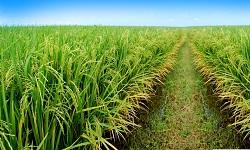
TRACK 13 Ecology: The scientific study of relation, abundance, and distribution of organisms in context to their relative interaction with the environment is called as ecology. It is a web of relations among organisms at different scales of organization, from the smallest to the biggest. Physiology, genetics, behavior, and evolution are the highlighted disciplines relating to ecology.
- Ecosystem ecology
- Biodiversity
- Natural resources
- Ecological niche
- Conservation ecology
- Environmental hazards
- Green-chemistry and green- engineering
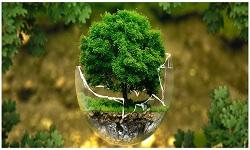
TRACK 14 Plant Science: The science of plant life is botany or phytology. Originating as herbalism with the efforts of early humans, the field has grown widely now covering fungi and algae too. The research topics of botany include growth and structure, reproduction, biochemistry, metabolism, development, diseases and plant taxonomy. Botanical research extends to breeding, forestry, horticulture, and agriculture.
- Plant genetics and genomics
- Plant anatomy and morphology
- Plant biochemistry
- Plant and environment
- Plant diseases
- Bryology
- Paleobotany

TRACK 15 Soil Science: Soil science is the rudimentary study of the formation, mapping, classification and other properties of soil, which is considered to be a natural resource. Together they assist in soil management. Engineers, agronomists, geologists, ecologists, biologists, microbiologists, archaeologists, and regional planners contribute to the advanced knowledge of soils and the advancement of the soil sciences.
- Land and water management
- Soil and Plant Analysis
- Soil Microbiology and Soil Remediation
- Soil chemistry
- Soil fertility & plant nutrition
- Microbial inoculant
- Soil physics and advance physical techniques
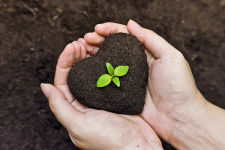
TRACK 16 Soil Fertility: The potential that a soil possesses to sustain agricultural growth in it is termed as soil fertility. A good soil provides the required nutrients and water for plant growth and simultaneously does not carry any toxic component which may hinder their reproduction and growth phenomenon. The depth of soil, soil pH, organic matter content, internal drainage, nutrient content and presence of microorganisms are the factors that affect the soil fertility.
- Soil fertility testing
- Evaluation of soil structural quality
- Soil compaction
- Improving soil fertility health
- Soil carbon in tillage systems
- Nitrogen management
- Efficient use of poultry manure
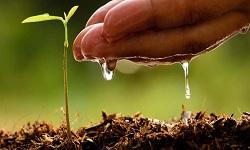
TRACK 17 Agriculture and Environment: Relating environmental concerns into the Agricultural Policy tends to minimize the threat of environmental degradation and increasing the sustainability of agro-ecosystems. The links between the profusion of the natural environment and farming enactments are complex so the need to consider them equally at any step is a must. The impact of farming practices on the environment can thus be either means-based or effect-based.
- Global warming & agriculture
- Climate change impacts on agriculture
- Mitigation and adaptation
- Impacts on nutrition, quality and resource use efficiency
- Forecasting in agriculture
- Effects of CO2 on plant growth
- New crops for a new climate
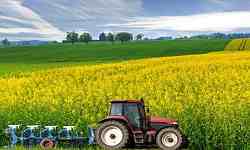
TRACK 18 Organic Farming: Organic farming is the enhancement of soil fertility and biological diversity while restricting synthetic pesticides, antibiotics, synthetic fertilizers, genetically modified organisms, and growth hormones. It is an integrated farming system approach that strives towards sustainability. It does not pose any adverse effect on the soil and underground water, unlike conventional farming which uses fertilizers and pesticides.
- Organic fruits and vegetables
- Soil amendments of animal origin
- Terrified biomass development
- Consumer’s advantage
- Organic orchard
- Organic Grains
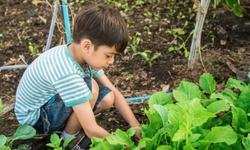
TRACK 19 Greenhouse: A greenhouse is a typical structure with walls and a roof and the frame is covered with a transparent sheet from all sides for the light to penetrate and reach the plants kept inside. Specific plants that require regulated climatic conditions are bred in it. The benefits of having a greenhouse include successful transplant, fresh fruits and ability to grow plants which otherwise would not have been able to survive in that climate.
- Gas emissions
- Construction of greenhouse
- Solar radiation anomalies
- controlling plant Production in a greenhouse by LED light
- deep winter and cold climate greenhouse
- Energy saving in greenhouses based on plant physiology
- Natural pollinators in greenhouses
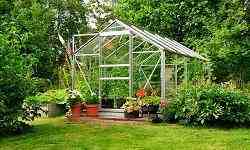
TRACK 20 Agricultural Infrastructure: Employment of DNA fingerprinting and tissue culture in agriculture plays an important role in increasing the productivity. The factors like high soil productivity, improved crops, better protection, a supply of balanced crop nutrients, effective water management, post-production management for value-addition and marketing, are responsible for higher yield.
- Rural infrastructure
- Irrigation in agriculture infrastructure
- Tissue culture
- Aquaculture
- Fish farming
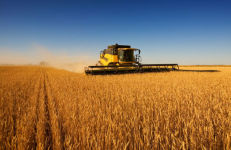
TRACK 21 Genetic Engineering: Genetic engineering is about adding one or more new traits to the original DNA of an organism, which was actually not present previously. It is advantageous and maximizing its application has been beneficial for the agriculture industry. Cloning is one of the prime focuses of genetic engineering in-spite of being a controversial issue. It is the replication of the DNA of an organism to produce the exact identical twin.
- Genetic manipulation
- Antibiotics and vaccines
- Genetic variability and random mutation
- Genetically modified organisms
- Genetically modified herbicide-resistant crops
- Bio-ethics
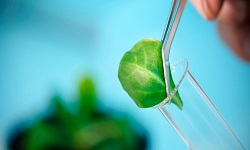
TRACK 22 Nanotechnology: Manipulation of matter on an atomic, molecular, and supramolecular scale is called nanotechnology. Naturally, it is very broad and includes fields of surface science, organic chemistry, molecular biology and also semiconductor physics. The uses include nanomedicine, nanoelectronics and biomaterials energy production.
- Biomaterials and Nano-biotechnology
- Nanotechnology in Structural Biology
- Nano-materials in Food and Agriculture
- Nanotechnology for Clean Energy and Environment
- Organic and Inorganic Nanomaterials
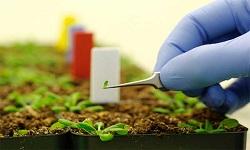
TRACK 23 Livestock Farming: Factory farming or intense livestock farming is about increasing the production output and cutting down the production cost for commercial purpose up to a certain extent. Livestock is generally reared for labor and for commercial production of meat, eggs, milk and other animal products like fur, leather, and wool. Livestock farming plays a significant role in the economic and social boost in the rural areas.
- Breeding techniques
- Environmental impact
- Sustainable livestock farming
- Animal health
- Better yielding practices
- Factory farming
- Livestock diseases
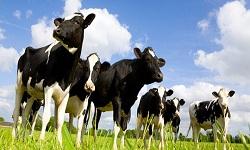
TRACK 24 Fertilizers: Compounds that are added to promote plant growth are called fertilizers. They are classified as organic and inorganic. Latter contains simple inorganic chemicals while organics comprise of dead leaves and plant matter and animal waste. Nitrogen, phosphorus, and potassium are the abundant elements in the fertilizers. The minor components include calcium, sulfur, and magnesium.
- Application of fertilizers
- Constraints in bio-fertilizer technology
- Nitrogen & Phosphate fertilizers
- Potassium & Compound fertilizers
- Organic fertilizers
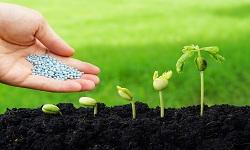
TRACK 25 Agricultural Production Systems and Agribusiness: Modern food production encompasses a diversity of activities related to agriculture and business disciplines. The term Agribusiness is a portmanteau of the two disciplines and casts light upon the major areas that deal with the production of agricultural products and their interdependence. Animal feed, biofuels and micro-ingredients are examples of agribusiness products.
- Sustainable agriculture
- Agricultural Economics
- Crop cultivation systems
- Final product-generating enterprises
- Agri-business And Financial Management
- Corporate farming
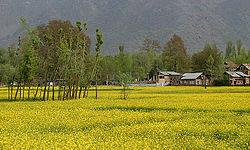
TRACK 26 Agriculture Extension: Farmer education about the knowledge of agricultural practices and its implementation in science and technology is the basic concept of agriculture extension. Educators from various disciplines, including agriculture, agricultural marketing, health, and business studies come together to make farmers aware of the new trends of farming through numerous modes of communication and learning.
- Extension education
- Subsistence crops
- Agriculture tools
- Green revolution
- Business studies
- Extension services
- Sustainable intensification

TRACK 27 Water Management: Well managed dams and levees reduce the risk of harm during flooding. Water management is thus the controlled movement of water in the resources to minimize damage to life and property. Another objective is to maximize efficient beneficial use of the same. Irrigation water management systems are the best for use of limited water supplies for agriculture.
- Water resources planning and management
- Water & energy efficiency
- Sustainable facilities & infrastructure resiliency
- Water conservation programs
- Climate change mitigation and adaption
- Course Water Protection
- Alternate water sources
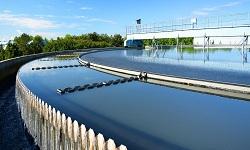
TRACK 28 Agriculture Waste Management: For different categories of waste to be disposed of in the right way, agri-waste management is a great concern since it facilitates the sorting of the waste into biodegradable and non-biodegradable followed by subdivisions of each into subcategories based on the hazardous nature. Risk assessment is a way to inspect, follow and manage apt disposal techniques. Compositing and burning are commonly for solid waste treatment.
- Biological process
- Aerobic treatment
- Anaerobic treatment
- Nitrogen control
- Land disposal
- Physical and chemical treatment
- The utilisation of agricultural waste

TRACK 29 Bioenergy and Bio-resources: The energy generated from animal and plant by-product is known as bio-energy. The source is inexhaustible and thus energy can be replenished by nature. Non-fossil biogenic resources which can be used by humans are called bio-resources. They serve the purpose of energy carriers, food production, and as substantial products.
- Bio-resources pre-treatment
- Bio-resource recovery and recycling
- Bio-resources for biofuels(liquid and gaseous)
- Bio-resources thermochemical conversion
- Bio-resources for bio-based chemical and products
- Bio-refineries
- Systems approach [bio-resource systems analysis, life cycle assessment (LCA), carbon accounting]

TRACK 30 Landscaping: Landscaping is the modification of the visible land area including living elements comprising of flora and fauna, natural water bodies and terrain, abstract elements like lighting and weather conditions. A skilled hand and sufficient knowledge of horticulture are necessary for landscaping in order to mold and modify the surroundings as per the requirement.
- Wild Style (Naturalistic) Planting
- Designing Spaces with the borrowed landscape
- Formulaic Mixed Perennial Plantings: new ways to green our cities
- Interpreting the Site and Landscape Integration
- Reimagining the Urban Landscape
- Planting Design
- Poetic Expressions of Landscape and Culture
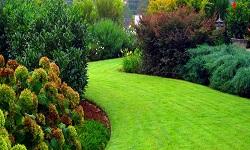
LEARN MORE
Agriculture and Horticulture universities in Europe:
Technical University Munich | Swedish University Of Agricultural Sciences | Alma Mater Studiorum (University Of Bologna) | University Of Hohenheim | Agro, Paris Tech | Ghent University | University Of Copenhagen | Eth Zurich (Swiss Federal Institute Of Technology | University Of Reading | Wageningen University | Latvia University of Life Sciences and Technologies | University of Kassel | University of Natural Resources and Life Sciences, Vienna | Trakia University, Agricultural Faculty, Stara Zagora | Agricultural University of Plovdiv, Plovdiv | University of Forestry, Sofia | Technical University of Varna | Institute of Agricultural Economics, Agricultural Academy, Sofia | Czech University of Life Sciences Prague | Mendel University Brno | Aarhus University | Royal Veterinary and Agricultural University | University of Helsinki | HAMK University of applied Sciences | School of Agriculture Savonia University of applied sciences | JAMK University of Applied Sciences | Christian-Albrechts-Universität zu Kiel | Friedrich-Wilhelms-Universität Bonn | Georg-August-Universität Göttingen | Justus-Liebig-Universität Gießen | Landwirtschaftlich-Gärtnerische Fakultät | Humboldt Universität, Berlin (formerly Agricultural University of Berlin) | Leibniz University Hannover | Martin-Luther-Universität Halle-Wittenberg | Technische Universität München
Agriculture universities in North America:
University of British Columbia | Grande Prairie Regional College, Alberta | University of Alberta | University of Saskatchewan | University of Manitoba | Ontario Agricultural College | University of Guelph | McGill University in Montreal, Québec | Arkansas State University | Iowa State University | Kansas State University College of Agriculture | University of California at Davis | University of Missouri | University of Nebraska, Lincoln | University of Florida | Abraham Baldwin Agricultural College | Alabama Agricultural and Mechanical University | Alcorn State University | Auburn University | Angelo State University | California State University Fresno (Fresno State) | Clemson University | Colorado State University | Cornell University College of Agriculture and Life Sciences | Delaware Valley University | Eastern Kentucky University | Louisiana State University | Michigan State University | Mississippi State University | Missouri State University | North Carolina State University | North Dakota State University | Oklahoma State University | Purdue University | Stockbridge School of Agriculture | The Ohio State University | University of Delaware | University of Florida | University of Massachusetts, Amherst | University of Wisconsin–Madison | Utah State University | Washington State University
Agriculture universities in Asia:
Gansu Agricultural University | Huazhong Agricultural University | Hunan Agricultural University | Hebei Agricultural University | Banaras Hindu University, Varanasi | G. B. Pant University of Agriculture and Technology, Pantnagar | Tamil Nadu Agricultural University, Coimbatore, Tamil Nadu, India | Faculty of Agriculture, University of Kurdistan | Faculty of Agriculture, University of Baghdad | Henan Agricultural University | Inner Mongolia Agricultural University | Jiangxi Agricultural University | Nanjing Agricultural University | Shanxi Agricultural University | Shenyang Agricultural University | Aligarh Muslim University | Chandra Shekhar Azad University of Agriculture and Technology | Indian Agricultural Research Institute | Indira Gandhi Agricultural University | Indian Veterinary Research Institute | University of Horticultural Sciences, Bagalkot | Uttarakhand University of Horticulture and Forestry | Islamic Azad University of Qaemshahr | Islamic Azad University of Shabestar | Agricultural University of Sari | Faculty of Agriculture, University of Kwofa | University of Thi-Gar | University of Maissan | University of Waset | University of Anbar | University of Dyalla | University of Karbala | Chiba University | Hirosaki University | Obihiro University of Agriculture and Veterinary Medicine | Osaka Prefectural University | Tokyo University of Agriculture and Technology | Chongjin University of Agriculture | Hyesan University of Agriculture | Kanggye University of Agriculture | Hamhung University of Agriculture | Sindh Agriculture University | Balochistan Agriculture College | University of Agriculture, Peshawar | University of Karachi | Asian Institute of Technology | United Arab Emirates University
Agriculture and Horticulture Societies:
The Agriculture, Food, and Human Values Society | New Jersey Agricultural Society | International Society of Precision Agriculture | Agricultural Economics Society of Japan | Agricultural Development and Training Society | ​Society For Engineering In Agriculture | New York State Agricultural Society | MANRRS | Airdrie & District Agricultural Society | National Geographic Society | Agricultural Society of Nigeria | Canadian Agricultural Economics Society | Hingham Agricultural and Horticultural Society | International Society for Horticultural Science | The Agri-Horticultural Society Of India | American Society for Horticultural Science | Bobcaygeon Horticultural Society | Horticultural Society of London
Agriculture and Horticulture journals:
Advances in Agriculture | Current Agriculture Research Journal | International Journal of Agriculture and Environmental Research | Annual Review of Entomology | Annual Review of Phytopathology | Frontiers in Ecology and the Environment | Global Ecology and Biogeography | Remote Sensing of Environment | Agricultural and Forest Meteorology | International Horticulture Journal & Research | World Journal of Agricultural Sciences | Journal of Horticulture and Forestry | Journal of Horticultural Science | Journal of Agricultural and Biological Science | Journal of the American Society for Horticultural Science | Scientia Horticulturae | The Horticulture Journal | Indian Journal of Horticulture | World Journal of Agricultural Sciences | Biological Agriculture and Horticulture | Journal of Horticulture and Forestry | World Journal of Agricultural Sciences | European Journal of Horticultural Science | Journal of Environmental Horticulture | Journal of Horticultural Research | International Research Journal of Horticulture
Agriculture and Horticulture conferences in USA:
CCA Convention, 18-20th June, 2018, Loveland | Annual Menus of Change Leadership Summit, 19-21st June, 2018, Poughkeepsie | Sustainable Agronomy Conference, 26-27th June, 2018, Madison | National AITC Conference, 25-29th June, 2018, Portland | Organic Produce Summit, 11-12th July, 2018, Monterey | InfoAg, 17-18th July, 2018, St. Louis | Organic Reactions & Processes, 15-20th July, 2018, Easton | The Cullowhee Native Plant Conference, 18-21st July, 2018, Cullowhee | Ag Transportation Summit, 25-26th July, 2018, Washington DC | Farm to Table International Symposium (F2Ti), 7-8th Sep, 2018, New Orleans | All Things Organic Conference, 13-14th Sep, 2018, Baltimore | Summit on Advancing the Agriculture Economy Through Innovation (Ag Innovation Summit), 20-21st Sep, 2018, Fort Collins | World congress on Plant Pathology & Plant Biotechnology September 24- 25, 2018, Dallas | Global Summit on Agriculture, Food Science and Technology October 26-27, 2018, Boston
Agriculture and Horticulture conferences in Europe:
11th International Veterinary Congress, July 02-03, 2018, Berlin, Germany | 13th International Conference on Agriculture & Horticulture, September 10-12, 2018, Zurich, Switzerland | Annual Congress on Veterinary and Animal Health Paris, France | 6th Global Summit on Plant Science, October 29-30, 2018, Valencia, Spain | 5th Annual Congress on Plant & Soil Science, February 28- March 01, 2019 London, UK | 12th World Congress on Plant Biotechnology & Agriculture, April 08-09, 2019 Prague, Czech Republic
Agriculture and Horticulture conferences in Asia:
8th International Conference on Asia Agriculture and Animal (ICAAA 2018), 26-28th July, 2018, Singapore | 8th International Conference on Environmental and Agriculture Engineering (ICEAE 2018), 26-28th July, Singapore | 4th International Conference on Sustainable Agriculture Technologies (ICSAT 2018), 19-21st Oct, 2018, Taichung, Taiwan | 6th International Conference on Food and Agricultural Sciences (ICFAS 2018), 14-16th Nov, 2018, Kuala Lumpur, Malaysia | 6th International Conference on Agriculture and Biotechnology (ICABT 2018), 19-21st Dec, Bangkok, Thailand | 3rd International Conference on Food and Agriculture Technologies (ICFAT 2019), 12-14th Jan, 2019, Langkawi, Malaysia | 2nd Int. Conf. on Agriculture, Food and Biotechnology (ICAFB 2019), 23-25 Jan, Singapore | 4th Annual Rural Development Conference, 19-21st July, 2019, Bangkok, Thailand
